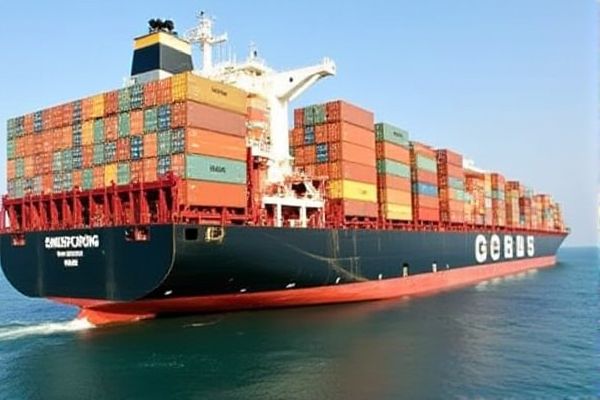
Kenya's shipping and logistics sector is rapidly expanding, creating numerous job opportunities in various roles such as supply chain management, freight forwarding, and warehouse operations. Major cities like Nairobi and Mombasa serve as key hubs for logistics companies, offering positions in operations, customs clearance, and distribution management. Qualifications in logistics management, supply chain analysis, or relevant experience can enhance your prospects in this competitive field. Staying updated with industry trends and networking can significantly improve job search success in this dynamic market.
Job Description
Shipping and logistics jobs in Kenya involve managing the movement of goods and services across local and international borders. These roles require a strong understanding of supply chain management, inventory control, and compliance with regulatory requirements specific to the country. Positions range from warehouse management and freight forwarding to logistics coordination and transportation planning. A successful candidate typically possesses strong organizational skills, attention to detail, and the ability to communicate effectively with various stakeholders.
Requirement
Shipping and logistics jobs in Kenya often require specific qualifications, such as a degree in supply chain management, logistics, or a related field. Practical experience in warehousing, inventory management, or transportation operations is highly valued by employers. Proficiency in logistics software and strong analytical skills can significantly enhance your employability in this competitive sector. Familiarity with local and international regulations governing shipping processes is also essential for a successful career in Kenya's logistics landscape.
Salary and Perks Expected
Shipping and logistics jobs in Kenya offer competitive salaries that vary based on experience, qualifications, and the specific role. Entry-level positions may start at approximately KES 30,000 to KES 50,000 per month, while mid-level professionals can earn between KES 70,000 and KES 120,000. Senior roles and management positions often command salaries exceeding KES 150,000, along with additional perks such as health insurance, performance bonuses, and travel allowances. The growing demand for skilled personnel in this sector provides opportunities for career advancement and skill development within the industry.
Similar Job Names
- Supply Chain Manager
- Logistics Coordinator
- Warehouse Supervisor
- Shipping Clerk
- Freight Forwarding Agent
- Import/Export Coordinator
- Transport Manager
- Inventory Control Specialist
- Procurement Officer
- Distribution Manager
- Customs Clearance Agent
- Fleet Manager
- Operations Manager
- Cargo Handling Supervisor
- Logistics Analyst
- Warehouse Manager
- Shipping Operations Executive
- Supply Chain Analyst
- Quality Assurance Inspector
- Dangerous Goods Coordinator
Job Expectation Concept
Shipping and logistics jobs in Kenya play a crucial role in facilitating trade and mobility within the East African region. Professionals in this field are expected to manage supply chain operations, coordinate shipments, and ensure compliance with local regulations. Strong organizational skills and a solid understanding of international shipping processes are essential for success in this competitive landscape. Opportunities abound in various sectors, making it an exciting career path for individuals interested in commerce and transportation.
Career Advantage and Weakness
Shipping and logistics jobs in Kenya offer a significant career advantage due to the country's strategic location along major trade routes, facilitating access to international markets. The growing demand for efficient supply chain management and the expansion of the port of Mombasa create numerous employment opportunities in this sector. However, a potential weakness lies in the challenges posed by infrastructure limitations, such as inadequate transport networks and bureaucratic inefficiencies that can impact operations. Understanding these factors is crucial for navigating your career path in this dynamic industry.
Important Thing Must Know
Shipping and logistics jobs in Kenya play a crucial role in the country's trade and economic development. The sector requires professionals skilled in supply chain management, freight forwarding, and customs regulations. Growth in the Kenyan market, particularly at ports like Mombasa, has led to increased demand for qualified personnel to manage shipping operations efficiently. Familiarity with local and international shipping laws is essential for anyone entering this field. Opportunities also exist in warehousing and distribution, which are vital components of the logistics ecosystem in Kenya.
Alternative Career Options
Shipping and logistics jobs in Kenya present various alternative career paths for individuals seeking opportunities in this growing sector. Roles such as supply chain management, customs brokerage, and freight forwarding are in demand, offering diverse responsibilities and professional growth. You can also explore positions in warehouse management and distribution, which are crucial in optimizing the supply chain. Engaging in logistics technology and data analytics can enhance your skill set and improve efficiency within the industry.
Companies List
- Kenya Airways
- Safaricom
- East African Breweries Limited
- Kenya Pipeline Company
- Kenya Ports Authority
- Unilever Kenya
- DHL Kenya
- Maersk Kenya
- Haco Tiger Brands
- Bidco Africa
List of Ideal City
Nairobi stands out as a major hub for shipping and logistics in Kenya, featuring a well-connected infrastructure, including Jomo Kenyatta International Airport and the Nairobi Railway. Mombasa, home to the largest port in East Africa, offers numerous opportunities in maritime logistics and international trade. Kisumu, located on the shores of Lake Victoria, is emerging as an important center for inland shipping and transport. Eldoret, with its expanding road network and proximity to agricultural production, plays a crucial role in supply chain and distribution sectors.
 jobs-kenya.com
jobs-kenya.com